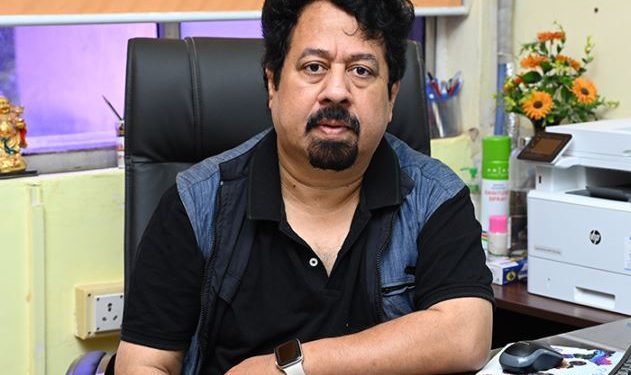Bhubaneswar: Mystery shrouds the death of 57-year-old Institute of Life Sciences (ILS) scientist Sandip Kumar Mishra after the acclaimed cancer researcher passed away under suspicious circumstances at Capital Hospital, late Saturday.
Mishra lived in Satya Nagar area of the City along with his family, said a source at ILS.
The Kharavel Nagar police Sunday lodged a case of unnatural death and officials at the police station said further investigation into the case is on.
Mishra’s sudden death blew up into a controversy after his family members dismissed reports indicating that the top scientist had committed suicide due to severe stress.
“Mishra was admitted to the Capital hospital after he complained of nausea and acute breathing issues,” said Mishra’s sister-in-law, adding that he was declared dead several minutes after his admission.
Alleging foul play by hospital authorities that led to Mishra’s untimely death, she said, “He ate KFC chicken and cold drinks Friday which probably caused acidity or food poisoning in his stomach.
Saturday, he was rushed to Capital Hospital for treatment. Following the treatment, his condition became stable. Though the doctors recommended another day’s rest, he refused and was adamant to go home. Accordingly, we bought him home. However, after a few hours, his health condition deteriorated and he started vomiting with severe diarrhoea,
Meanwhile, speaking on the conditions of anonymity, an official at ILS said Mishra had been accused of sexual harassment by a female colleague in May this year. Later, the institute set up an Internal Complaints Committee (ICC) to investigate the charges. It absolved Mishra of all charges due to his ‘influential position’, he alleged.
Mishra’s colleagues said the scientist was ‘acclaimed’ worldwide for his exceptional research works, such as discovery of a tumour suppressor gene in breast cancer. He had developed a drug called ‘Artemisinin’ from estrogen-related receptor beta (ERRβ) molecule and leaves and flowers of sweet wormwood plant (Artemisia annua), claiming it to be successful in curing breast cancer patients. He proved that cancer cell migration and invasion can be restricted and controlled by Artemisinin in estrogen receptor-positive (ER-positive) breast cancer cells. The study was accepted for publication in the international journal Biomed Central, BMC Cancer.
Before joining ILS Bhubaneswar as a scientist in July 2018, Mishra worked as an instructor with the Department of Neurosurgery at MD Anderson Cancer Center in Houston, United States.
Mishra is survived by his wife and a son.
Debadurllav Harichandan, OP






































